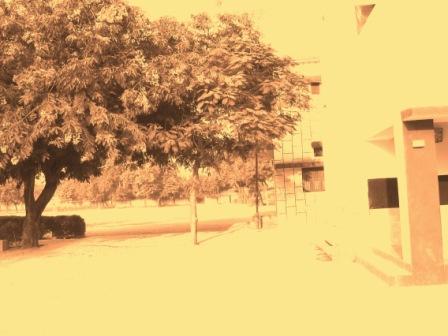As promised, I've started the exercise of interpreting and translating Pirzada Qasim's "Aap Bohot Ajeeb Hain" from Urdu into English. I try to retain some of the aura of the original lines in terms of their complex and layered meanings, and yet also try to convey what the lines meant literally. It's a tough balancing act. I'll continue to edit and improve some lines as I go along...
You Indeed Are Strange
[By Pirzada Qasim. Translated from the original by Siyaah]
In grief do you find solace, you indeed are strange,
Pain, you take to with ease, you indeed are strange. [1]
Your beloved's shade, with arms outstretched, awaits you for long,
You prefer solitary scorching travails, you indeed are strange. [2]
The judgement against you, flows forth from your own pen,
You but wring your hands in despair, you indeed are strange. [3]
Time blew out long ago, the flame of your hope,
You still melt as wax, you indeed are strange.
Efforts to strike you down again, you spare your friend,
You fall and rise by yourself, you indeed are strange. [5]
Love's paths utimately lead always to the same state,
You change your path again, you indeed are strange. [6]
All wonders of the wilderness reside at your home,
Why then do you step out, you indeed are strange. [7]
These wanderings in search of yourself, will they ever abate,
You walk even in your sleep, you indeed are strange.
---
Translator's notes:
Dhal rahe hain in couplet [1] has no exact equivalent expression in English. It could mean 'take the form of', 'become comfortable', 'conditioned', etc. 'Take to' seems the closest expression possible to convey the various meanings.
Saaya-e-Vasl in couplet [2]: Vasl literally means 'union' and could also imply 'consummation'. Saaya-e-Vasl is therefore literally 'shade of union'. I have captured the effect by the image of the 'shade of the beloved's outstretched arms', and contrasted the union implied by adding 'solitary' in the second line.
Haath bhi mal rahe hain in couplet [3]: literally means 'rubbing one's hands' and is a gesture of loss and helplessness in Urdu, but has a very different meaning in English, as in 'rubbing one's hands in glee'! I finally chose 'wring one's hands' as a more accurate expression in English.
Zahmat-e-zarbat-e-digar in couplet [5]: 'digar' is often mis-transliterated as 'jigar' on many websites. This beautiful expression is composed of Persian words: Zahmat: effort, obligation; Zarbat: strike, hit; Digar: again, another.
Dairawaar in couplet [6]: literally means 'bounded in a circle'.
Dasht in couplet [7]: literally conveys a mix of the meanings in 'desert' and 'wilderness'.
Subscribe to:
Post Comments (Atom)






4 comments:
Liked your translation and *LOVED* the original!
Thanks for introducing me to Pirzada Qasim!
Shankari:
Glad you loved it...the original is just amazing. Pirzada recites it very well too...not to be missed. The translation is a humble attempt to take this to English readers...thanks for the encouragement.
Hope you enjoy the other pieces here as well...
Loved the translation. I read your translation while listening to the poem being recited by Pirzada Qasim himself. Thanks a lot. Helped me understand it so much better.
Thanks again
I think the last sher means you're walking in a dream and not sleep
Post a Comment